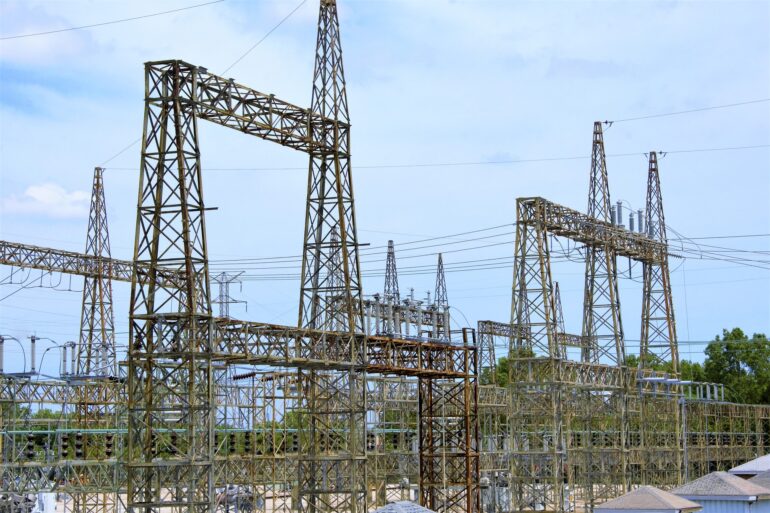TL;DR:
- A $1 million grant from the U.S. Department of Homeland Security (DHS) supports research to bolster the resilience of the electrical grid.
- The interdisciplinary team, led by Assistant Professor M. Hadi Amini, will employ machine learning and AI to develop solutions for critical infrastructure resilience.
- The grant also emphasizes the importance of enhancing cybersecurity to protect against cyberattacks on critical infrastructure.
- The initiative includes the creation of the Advanced Education and Research for Machine Learning-driven Critical Infrastructure Resilience (ADMIRE) Center.
- ADMIRE Center offers tuition coverage for students, conference travel support, mentorship, and internships to prepare them for careers in cybersecurity and critical infrastructure resilience.
- The project aims to broaden participation in STEM fields related to homeland security and strengthen connections with relevant agencies and private companies.
Main AI News:
In today’s fast-paced world, power outages are more than just an inconvenience; they disrupt our daily lives, causing screens to go dark, lights to dim, and air conditioners to lose their cool. While local utilities can swiftly address isolated outages, the stakes escalate when an entire city’s infrastructure, including essential services like traffic lights, hospitals, and sewage systems, depends on a central electrical grid. In such scenarios, innovative solutions are imperative.
Government officials and researchers are taking proactive measures to fortify the nation’s electricity-generation and transmission infrastructure against unforeseen challenges. Assistant Professor M. Hadi Amini, the visionary director of the Sustainability, Optimization, and Learning for InterDependent Networks Laboratory (solid lab) at FIU’s Knight Foundation School of Computing and Information Sciences, emphasizes the importance of secure and resilient critical infrastructure.
Amini leads an accomplished interdisciplinary team from the College of Engineering and Computing, which has been awarded a substantial five-year, $1 million grant from the U.S. Department of Homeland Security (DHS). Their mission? Harness the power of machine learning and artificial intelligence (AI) to devise innovative solutions for critical infrastructure resilience. The grant also highlights the critical need for cybersecurity enhancements to safeguard against cyber threats targeting vital infrastructure.
“I am absolutely thrilled about this grant, which paves the way for a groundbreaking exploration of interconnected infrastructures such as transportation and energy systems,” expressed Amini, a recognized expert in AI and its applications in homeland security and engineering challenges. “Our goal is to ensure that essential services continue to operate seamlessly even when faced with adversity. With the aid of AI, our interdisciplinary team aims to empower these systems with autonomous resilience. I am especially proud that our students will play an integral role in this cutting-edge endeavor, gaining invaluable experience in top national laboratories.”
Beyond facilitating advanced research, the grant has enabled the establishment of the Advanced Education and Research for Machine Learning-driven Critical Infrastructure Resilience (ADMIRE) Center. This initiative equips students with the knowledge and skills necessary to excel in areas aligned with the DHS mission, encompassing cybersecurity, machine learning, and critical infrastructure resilience.
Participating bachelor’s, master’s, and Ph.D. students will have their tuition covered, in addition to support for conference travel expenses. Furthermore, students will receive mentorship from esteemed university experts and assistance in securing internships at national laboratories.
“Our mission is to broaden participation and enhance education, research, and workforce development in STEM areas related to homeland security. We aim to create opportunities for college students, university students, and faculty to establish connections with relevant agencies and private companies in this field,” Amini noted.
Students at the ADMIRE Center will not only gain comprehensive technical knowledge in this emerging field but will also be actively involved in internships and events with the Department of Homeland Security Centers of Excellence, the Department of Energy National Labs, and other key partners.
In this collaborative effort, co-principal investigators on the grant, including Jason Liu, Endowed Computer Science Professor and Director of the Knight Foundation School of Computing and Information Sciences, Assistant Professors Stephanie Lunn, Ruimin Sun, and Cuong Nguyen, along with Associate Professor Leonardo Bobadilla and Assistant Teaching Professor Gregory Reis, are poised to make significant strides in bolstering the resilience of our critical infrastructure. Together, they are writing a brighter, more resilient future for our nation’s electrical grid.
Conclusion:
The substantial grant and the establishment of the ADMIRE Center represent a significant step towards enhancing the resilience of critical infrastructure, particularly the electrical grid. The integration of machine learning and AI technologies, along with a focus on cybersecurity, demonstrates a commitment to safeguarding essential services in the face of adversity. This initiative will not only benefit students but also contribute to the market by fostering a skilled workforce capable of addressing cybersecurity and infrastructure resilience challenges in an increasingly interconnected world.

